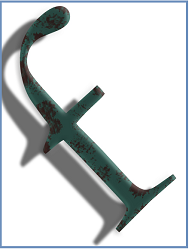O ENSINO DA LÍNGUA PORTUGUESA NO BRASIL PARA FALANTES DA(S) VARIEDADE(S) NÃO PADRÃO DA LÍNGUA
DOI:
https://doi.org/10.22481/folio.v12i1.6797Palavras-chave:
Ensino; Identidade do aluno; Língua portuguesa padrão; Preconceito linguístico; Variedades linguísticas.Resumo
Este artigo tem como objetivo refletir acerca de como ocorre o ensino da variação linguística no contexto da sala de aula e sobre como os alunos se reconhecem, a partir de sua identidade linguística. Para tanto, analisa quatro coleções de livros didáticos que estiveram em fase de análise para uso no triênio 2018-2020 pelas escolas estaduais do Espírito Santo e utiliza um formulário de percepção de língua preenchido por alunos do primeiro ano do ensino médio de uma escola em Viana/ES, a fim de detectar como o ensino de língua portuguesa influencia na identidade do aluno, sobretudo no ambiente escolar. Busca defender um ensino que considere as variedades linguísticas presentes em sala de aula, em que se articule o ensino do português padrão, a valorização e o respeito ao falar diferente dos alunos. Para tanto, utilizamos como vertentes teóricas, para sustentação deste artigo, os pressupostos estabelecidos pela Sociolinguística e a Sociolinguística Educacional, com base nas reflexões de Weinreich, Labov e Herzog (2006 [1968]), Labov (2008 [1972]), Bortoni-Ricardo (2004; 2005) e Bagno (2013).
Downloads
Referências
2. ANDRADE, Oswald. Obras completas. Volumes 6-7. Rio de Janeiro: Civilização Brasileira, 1972.
3. BAGNO, Marcos. Sete erros aos quatro ventos: a variação linguística no ensino do português. São Paulo: Parábola Editorial, 2013.
4. BARRETO, Ricardo Gonçalves; BÁRBARA, Miranka Gonçalves-Santa; BERGAMIM, Cecília. EDIÇÕES SM (Org.). Ser protagonista: língua portuguesa. 3.ed. São Paulo: Edições SM, 2016. v. 1. p. 158-170. (Coleção Ser protagonista).
5. BORTONI-RICARDO, Stella Maris. O português brasileiro. In.: _______. Educação em língua marterna: a sociolinguística na sala de aula. São Paulo, Parábola, 2004, p. 53 – 70.
6. _______. Nós cheguemu na escola, e agora? Sociolinguística e Educação. São Paulo: Parábola Editorial, 2005.
7. BRASIL. Ministério da Educação. Secretaria de Educação Básica. Guia de livros didáticos: PNLD 2018: Ciências: Ensino Fundamental: Anos Finais. Disponível em: https://www.fnde.gov.br/index.php/programas/ programas-do-livro/pnld/guia-do-livro-didatico/item/11148-guia-pnld-2018. Acesso em 22/08/2017.
8. _______. Ministério da Educação. Passo a passo para o registro de escolha – PNLD -2018. Disponível em: https://www.fnde.gov.br/index.php/centrais-de-conteudos/publicacoes/ category/125-guias?download=10750:passo-a-passo-escolha-pnld-2018. Acesso em: 22/08/2017.
9. _______. Ministério da Educação. Parâmetros Curriculares Nacionais – Ensino Médio. Disponível em: <http://portal.mec.gov.br/seb/arquivos/pdf/14_24.pdf>. Acesso em: 22/08/2017.
10. _______. Ministério da Educação. PCN Ensino Médio + Orientações Educacionais Complementares aos Parâmetros Curriculares Nacionais – Linguagens, Códigos e suas Tecnologias. Disponível em: <http://portal.mec.gov.br/seb/arquivos/pdf/linguagens02.pdf>. Acesso em: 22/08/2017.
11. _______. Ministério da Educação. Fundo Nacional de Desenvolvimento da Educação. Programa Dinheiro Direto na Escola. Disponível em: <http://www.fnde.gov.br/programas/dinheiro-direto-escola/dinheiro-direto-escola-apresen tacao>. Acesso em: 22/08/2017.
12. GROSJEAN, F. Life with two languages: an introduction to bilingualism. Cambrige, Massachussetts, London: Harvard University Press, 2001 [1982].
13. LABOV, Willian. Padrões sociolinguísticos. Tradução de Marcos Bagno, Maria Marta Pereira Scherre e Cardoso, Caroline Rodrigues. São Paulo: Parábola, 2008 [1972].
14. ORMUNDO, Wilton; SINISCALCHI, Cristiane. Se liga na língua: literatura, produção de texto e linguagem. São Paulo: Moderna, 2016. v. 1. p. 238-255; p. 272-277. (Coleção Se liga na língua).
15. RIBEIRO, Ivone; SETTE, Graça; STARLING, Rozário; TRAVALHA, Márcia. Português: trilhas e tramas. 2. ed. São Paulo: Leya, 2016. v. 1. p. 204-211. (Coleção Trilhas e tramas)
16. _______; _______; ________. Português: trilhas e tramas. 2. ed. São Paulo: Leya, 2016. v. 3. p. 278-287. (Coleção Trilhas e tramas).
17. WEINREICH, Uriel; LABOV, William; HERZOG, Marvin. Fundamentos empíricos para uma teoria da mudança linguística. São Paulo: Parábola, 2006 [1968]. (Tradução de Marcos Bagno).
Downloads
Publicado
Como Citar
Edição
Seção
Licença






